Senate confirms Alex Acosta as Donald Trump’s secretary of labor
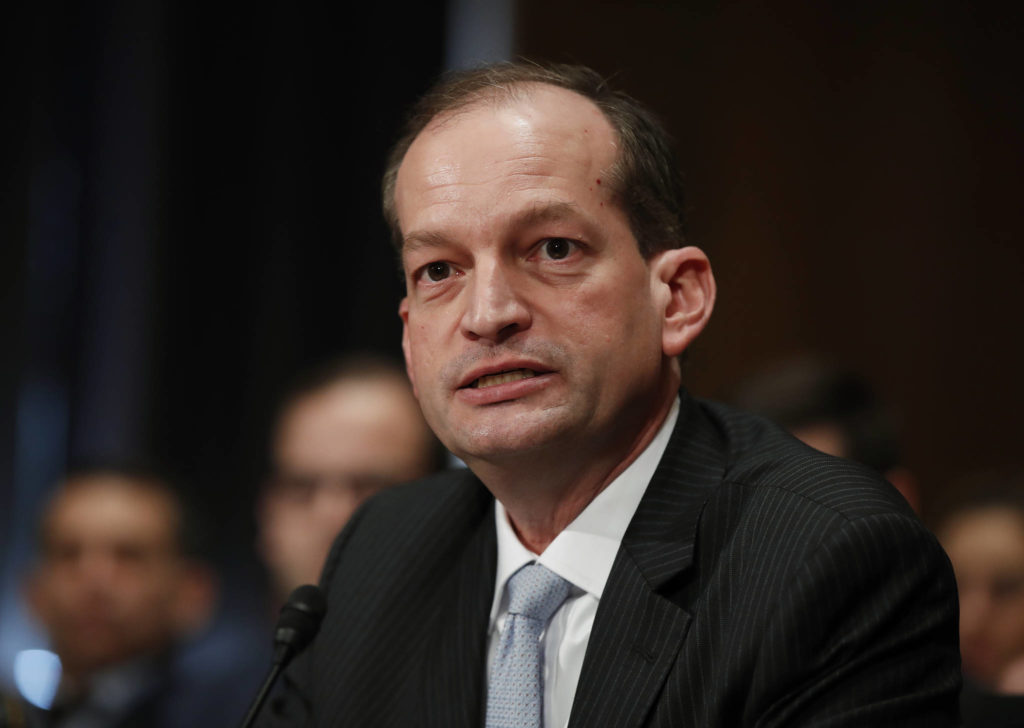
The Senate on Thursday confirmed Alex Acosta as Labor secretary, filling out President Donald Trump‘s Cabinet as he approaches his 100th day in office. The 60-38 vote confirms Acosta to the post. Once sworn as the nation’s 27th Labor secretary, the son of Cuban immigrants will lead a sprawling agency that enforces more than 180 federal laws covering about 10 million employers and 125 million workers. Sen. Tim Scott, R-S.C., spoke for many Republicans with a statement issued just after the vote saying he hopes Acosta’s focus will be “promoting labor policies that are free of unnecessarily burdensome federal regulations.” Scott said he wants Acosta to permanently revoke rules governing financial advisers and adding Americans eligible for overtime pay. Democrats said any Labor secretary should advocate for the American workers to whom Trump promised so much during his upstart presidential campaign. They said Acosta has given no such commitment. “Acosta failed this basic test,” tweeted Sen. Elizabeth Warren, D-Mass. Acosta has been a federal prosecutor, a civil rights chief at the Justice Department and a member of the National Labor Relations Board. He will arrive at the top post with relatively little clear record on some of the top issues facing the administration over key pocketbook issues, such as whether to expand the pool of American workers eligible for overtime pay. Acosta wasn’t Trump’s first choice for the job. Former fast food CEO Andrew Puzder withdrew his name from consideration last month, on the eve of his confirmation vote, after becoming a political headache for the new administration. Puzder acknowledged having hired a housekeeper not authorized to work in the U.S. and paying the related taxes years later — after Trump nominated him — and came under fire from Democrats for other issues related to his company and his private life. Acosta’s ascension would come at a key moment for Trump, just two days before he reaches the symbolic, 100-day marker. The White House has sought to cross the threshold with its own list of Trump’s accomplishments. Trump can say the Acosta vote was bipartisan, because eight Democrats and one independent voted yes. Joining the Republicans in his favor were Democratic Sens. Catherine Cortez Masto of Nevada, Heidi Heitkamp of North Dakota, Joe Manchin of West Virginia, Claire McCaskill of Missouri, Bob Menendez of New Jersey, Bill Nelson of Florida, Jon Tester of Montana and Mark Warner of Virginia. Independent Sen. Angus King of Maine also voted for Acosta. Labor secretary is the last Cabinet post for Trump to fill. Trump’s choice for U.S. trade representative, a job considered Cabinet-level, is awaiting a Senate vote. From the beginning, Acosta’s was a quiet march to confirmation that stood out because it didn’t attract the deep partisan battles faced by some of Trump’s other nominees, including Education Secretary Betsy DeVos and Secretary of State Rex Tillerson. Justice Neil Gorsuch‘s nomination provoked such a fight that majority Senate Republicans used the “nuclear option” to remove the 60-vote filibuster barrier for Supreme Court picks. Thursday’s vote marks the fourth time Acosta has been confirmed for the Senate. Democrats and most labor groups were mostly muted in their response to Acosta’s nomination. At his confirmation hearing, Democratic Sens. Patty Murray of Washington and Warren hammered Acosta for answers on a selection of issues important to labor and whether Acosta would cave to political pressure from Trump. Acosta refused to answer the policy questions until he’s confirmed, and he vowed to be an independent and fair voice for workers. Both senators said they had great concerns, and both voted no. Our standard can’t be ‘not Puzder,’” Murray said Wednesday on the Senate floor. But tellingly, even as Acosta’s nomination wound through the Senate, Democrats and their allies also tried to move on to other, labor-related issues — namely, a minimum wage hike to $15 an hour, which Trump opposes. Meanwhile, the Labor Department’s online landing page bears a glimpse of Acosta’s policy priorities: “Buy American, Hire American.” That’s the title of Trump’s executive order this week directing the secretaries of labor and other agencies to issue guidance within 60 days on policies that would “ensure that, to the extent permitted by law” federal aid “maximize the use of materials produced in the United States, including manufactured products; components of manufactured products; and materials such as steel, iron, aluminum, and cement.” Republished with permission of The Associated Press.
Donald Trump finds that CEO-as-president isn’t always a natural fit
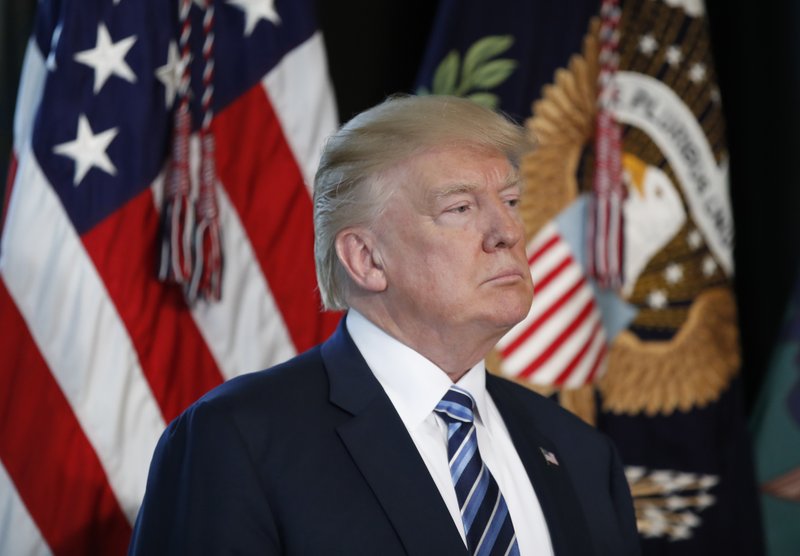
Donald Trump won the White House by arguing that what America needed was a president who had proved himself as a steely and successful corporate leader with no political baggage — someone, say, like himself. If Abraham Lincoln relied on a team of rivals, Trump would command a team of “killer” CEOs. He cast himself as a gifted manager who could rewrite flawed trade deals, bridge gaps between Democrats and Republicans, work financial magic on the tax code and restore prosperity to devastated factory towns. Yet 100 days into Trump’s presidency, the businessman-as-president has struggled to apply his experience as a real estate and entertainment mogul to the Herculean task of governing the world’s most powerful nation. Asked to assess his tenure so far, management experts point to a stream of missteps that run counter to the clarity, discipline and consistency of message typical of the best executives. Blustery speeches have given way to fuzzy policies that have weakened the president’s negotiating hand on such complex challenges as revamping taxes and health insurance. Trump’s actions on immigration have been blocked or tangled up in court battles. He has yet to fill countless senior government jobs. Having failed to pass any major legislation, Trump has instead resorted to signing a torrent of executive orders — an impulse more typical of a manager directing subordinates than a president building partnerships. The administration has declared the 100-day mark an arbitrary deadline. But leading CEOs often work under even tighter schedules: Investors gauge their performance each quarter — every 90 days. John Challenger, CEO of the executive recruiting firm Challenger, Gray & Christmas, notes that new chief executives typically face pressure to achieve victories in their first 90 days. Such milestones tend to draw potential critics to their side and establish authority, he said. “They don’t have to be big wins —they can be early wins as you look for ways to show you’ve had an impact,” Challenger said. “This administration has had a hard time demonstrating, showing that.” White House aides point out that Trump will have signed 32 executive orders by Friday, the most of any president in his first 100 days since World War II. But the actions produced by those orders fall well short of the bold promises he made as a candidate. Several of the executive orders are merely requests for studies — on financial regulations, environmental rules and trade policies. They suggest that the administration is still figuring out how government works and how to tame a rambunctious and independent-minded Congress, even one led, like the White House, by Republicans. Trump still likes to bask in the glow of corporate America. Almost weekly, he has met with major chief executives at the White House for input on policy and photo-ops. Yet few around him know their way around government. For secretary of state, Trump chose Rex Tillerson, the former chief executive of Exxon Mobil. For Commerce secretary, his pick was Wilbur Ross, a billionaire investor. For Treasury, it was Steve Mnuchin, a Wall Street executive turned movie producer. And as his top economic adviser, Trump tapped Gary Cohn, formerly Goldman Sachs’ No. 2 executive. Like Trump, none of them had any political experience. “It’s the blind leading the blind,” said Henry Mintzberg, a management expert at McGill University. “You need to get people who can think for themselves but also have a deep understanding of the issues. Drop this silly idea that government can be run like a business.” In an interview last week with The Associated Press, Trump appeared to concede that a president cannot manage successfully with solely a bottom-line corporate mentality. “Here, everything, pretty much everything you do in government, involves heart, whereas in business, most things don’t involve heart,” he said. “In fact, in business you’re actually better off without it.” Some in his Cabinet have portrayed their shift from the private sector as a natural move that bestows its own advantages. “A lot of the things I learned in business carried over to this job,” Treasury Secretary Mnuchin said Wednesday. “A lot of it is about consensus building and teamwork.” Trump, of course, needs support from Congress’ independently elected lawmakers to pass laws and from foreign leaders to forge global alliances — responsibilities that can be more delicate than negotiating with business partners who stand to profit from cutting a deal. Since becoming president, Trump has retreated from some of his audacious campaign promises. He now hails the NATO alliance as important, having previously labeled it obsolete. He backed away from labeling China as a currency manipulator and now casts Beijing as a likely ally in defusing a nuclear North Korea. These changes display a certain openness to change in response to circumstances, said Kathleen O’Connor, a professor at Cornell University’s business school with an expertise in negotiating strategies. Yet Trump has adopted so many contradictory stances as to make it hard to engender trust with lawmakers. He pushed an aggressive timeline for replacing President Barack Obama‘s health care law, scrapped the plan once it failed to receive enough support from House Republicans and then tried to revive it this week while also unveiling his principles on a tax overhaul, trying to stop a government shutdown and issuing duties on Canadian lumber. “He seems to lack some clarity with what he wants,” O’Connor said. “It’s hard to take that reputation to the bargaining table because you don’t know if you’re going to get the same guy two days in a row.” Richard Box, a retired professor at the University of Nebraska at Omaha, in 1999 wrote a major academic article about running government as a business. He suggests that the administration must make longer-term investments in policies and ideas to cultivate support with voters and lawmakers, rather than assume it can cut deals as one might for a TV show or condo tower. Business leaders “sometimes come to (government) positions thinking it’s just a matter of the sort of command-and-control they are
Millennial Alabama lawmakers launch bipartisan Future Caucus
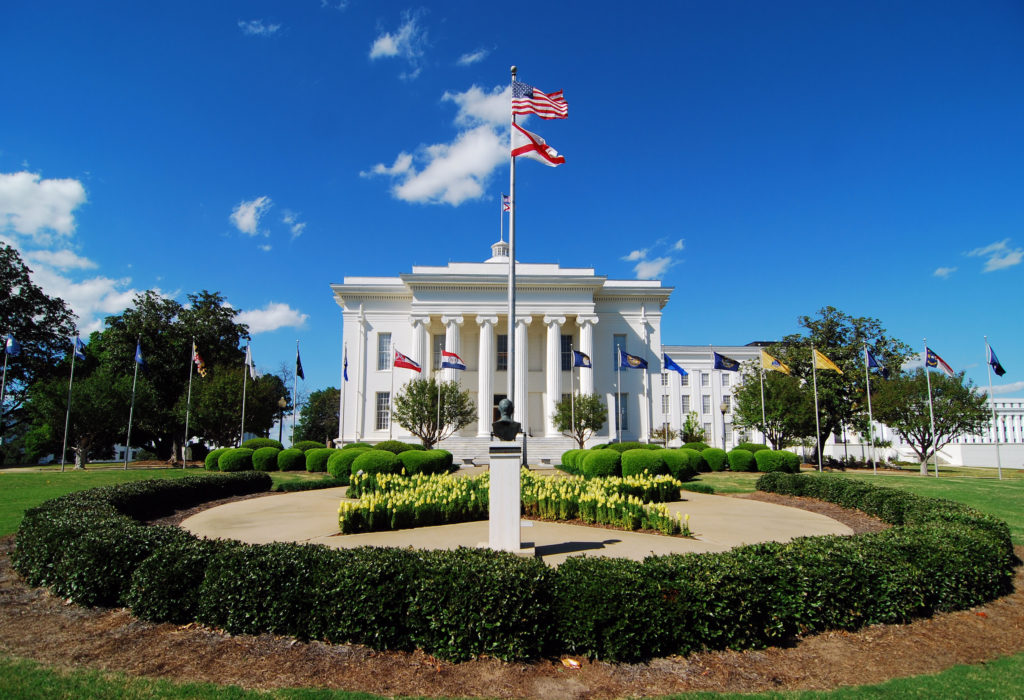
Millennials officially became the America’s largest living generation last year, according to data from the U.S. Census Bureau. As more of them get involved in politics and advocacy, a group of Alabama lawmakers want to make sure their voices are heard in the state Legislature. On Thursday, a bipartisan group of state legislators under the age of 40 came together to form the Alabama State Future Caucus. Together, these young and innovative legislators have committed to working on the issues facing millennials and future generations. Led by 36-year-old Republican Rep. Kyle South of Tuscaloosa and 40-year-old Democratic Chris England also of Tuscaloosa, the Future Caucus is part of a nationwide movement of millennial legislators who are seeking to find common ground in an era of hyper partisanship. Members of the caucus will work to break through partisan gridlock and reestablish political cooperation. An initiative of the Millennial Action Project, there are now 17 Future Caucuses in state legislatures across the country making it the largest nonpartisan organization of millennial elected officials in the United States. “Millennial Action Project is thrilled to expand its State Future Caucus network in the South, with Alabama today joining Florida and Georgia. It’s encouraging that Reps. England and South are committed to working together, across party lines, to make sure that our voices are heard at the state capitol,” said Steven Olikara, Co-Founder and President of Millennial Action Project. “Millennials have the power to shape the future of politics in our country, if today is any indication, we have a bright future ahead of us.” Defined as young adults ages 18 to 34, millennials make up 27.1% of the state’s population. According to Forbes, millennials will make up 46% of the workforce by 2020. Even now the millennial generation accounts for over 33% of the national workforce, making the new caucus’ work even more important to the future of Alabama. “I’m honored to serve as a Co-Chair of the Alabama Future Caucus and with my colleagues, support the work of the Millennial Action Project as we work to find new and innovative ways to tackle political issues that are important to younger generations,” said England. South noted, “I’m thrilled to lead the Alabama Future Caucus with Rep. England to ensure that the concerns of millennials are a priority when the Alabama House of Representatives sets its agenda each session.” Watch the announcement of the Alabama State Future Caucus below:
Pentagon probes former Trump aide Michael Flynn’s foreign payments
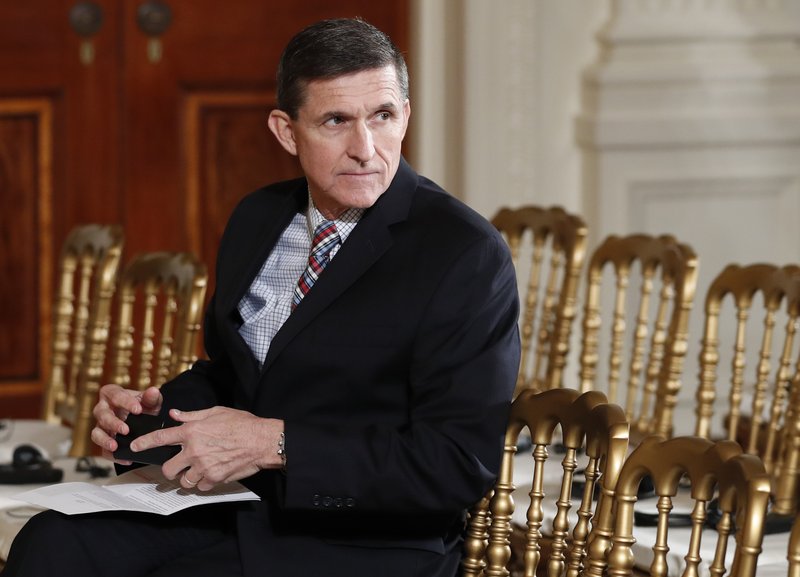
The investigations into President Donald Trump‘s ousted National Security Adviser Michael Flynn intensified Thursday as the Pentagon’s watchdog joined lawmakers in scrutinizing the legality of payments he accepted from foreign sources including a Russian state-sponsored television network. Also, new documents released by the ranking Democrat on a House oversight committee showed Flynn was warned by authorities when he retired from the military in 2014 not to take foreign government-sourced money without “advance approval” from the Pentagon. Flynn, a former Army lieutenant general and Defense Intelligence Agency chief, later accepted tens of thousands of dollars for his work on behalf of foreign interests, including RT, the state-supported Russian television network, and a Turkish-owned company linked to Turkey’s government. The Pentagon’s acting inspector general’s office confirmed Thursday he has launched an inquiry into whether those payments qualify as coming from foreign governments and whether Flynn properly informed military authorities about them. Rep. Elijah Cummings, D-Md., who released the documents on Flynn, said during a news conference that Flynn was clearly informed that he needed to get permission to receive foreign payments and there’s no evidence he did so. “The Pentagon’s warning to General Flynn was bold, italicized and could not have been clearer,” Cummings said. Both Cummings and Utah Republican Jason Chaffetz, the chairman of the Committee on Oversight and Government Reform, have previously said they planned to ask the Army to rule on whether Flynn properly informed and asked permission for the payments from Russian and Turkish entities. A key document released Thursday by Cummings showed that Flynn was warned by a Defense Intelligence Agency official in October 2014 that he would need clearance from the Army before he could accept any earnings linked to foreign governments. Flynn was told in the document that the U.S. Constitution’s emoluments provision prohibits any monetary payments or gifts “from a foreign government unless congressional consent is first obtained.” The letter explained that such “advance approval” would need to come “from the relevant service secretary.” Flynn received at least $33,750 for his appearance in Moscow in 2015 for RT’s anniversary celebration, a gala where Flynn sat next to Russian President Vladimir Putin. Flynn has previously disclosed that he received between $50,000 and $100,000 as part of his personal stake in $530,000 that his company, Flynn Intel Group, received for consulting work performed last year for a Turkish businessman. Flynn’s firm filed as a foreign agent last month with the Justice Department for its consulting work and acknowledged that it may have benefited the government of Turkey. Flynn’s client, Inovo BV, is owned by a Turkish businessman who is also a member of a committee overseen by Turkey’s finance ministry. The U.S. House committee’s leaders reported earlier this week that they found no evidence that Flynn asked for permission for foreign payments he received or informed the military that he had accepted them. Army spokeswoman Cynthia O. Smith Thursday also said “we have found no records of LTG(R) Flynn requesting permission from the Army for foreign employment.” In comments to the AP, Chaffetz said that Flynn “had an obligation to seek approval to take money from a foreign government. We found no evidence that he did that.” Chaffetz, however, did not join Cummings at the Thursday news conference, unlike their bipartisan appearance earlier in the week announcing the results of the committee’s inquiry into Flynn’s dealings with authorities before and after his foreign earnings. Chaffetz’s office released a letter he sent on Thursday to the Army, asking the service’s acting secretary to make a final determination as to whether Flynn violated federal law by accepting the payments, and if so, to start the process of recovering that money. Chaffetz also asked the Army to say why it hasn’t already made a determination as to the legality of Flynn’s payments from RT given that they have been widely reported for at least two years. He also wants the Army to disclose any other investigations it’s launched since 2010 into similar legal violations. The committee’s inquiry is one of several congressional investigations into Flynn’s contacts with foreign officials before and during his brief stint as Trump’s top national security aide. Trump fired Flynn for failing to inform senior administration officials about his contacts with Russian officials — contacts that are being examined as part of the wider inquiries into Russian meddling in the 2016 presidential campaign. “These documents raise grave questions about why General Flynn concealed the payments he received from foreign sources after he was warned explicitly by the Pentagon,” Cummings said. “Our next step is to get the documents we are seeking from the White House so we can complete our investigation.” On Thursday, 18 House Democrats on the oversight committee signed a joint letter calling on Chaffetz to do more to pressure the White House to release documents regarding Flynn. “There is obviously a paper trail that the White House does not want our committee to follow,” the Democrats wrote in the letter. So far, the committee has not received any information on how the Trump White House vetted Flynn, they said. The White House recently told the committee that documents the lawmakers sought would not be turned over because they contained classified information or were not relevant to the committee’s investigation. Republished with permission of the Associated Press.
D’oh! ‘Simpsons’ needle Donald Trump ahead of 100-day milestone
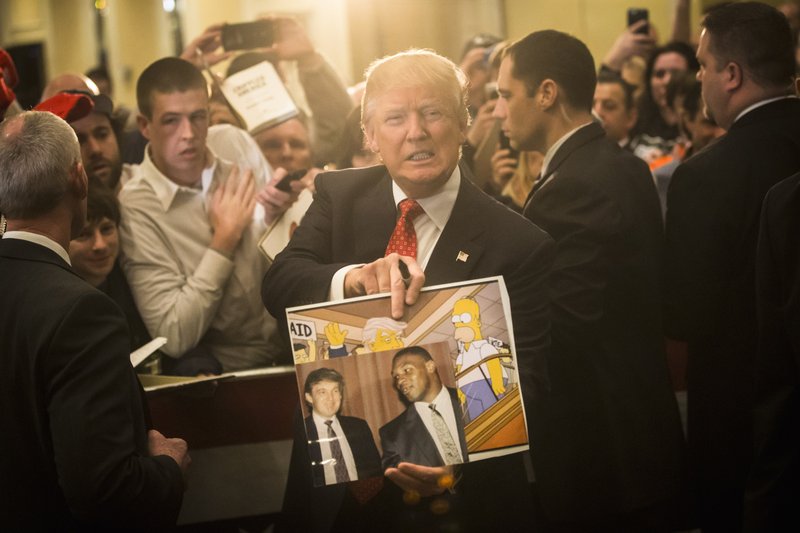
“The Simpsons” is taking on President Donald Trump’s first 100 days in office in a short animation released online. The clip shows an animated Trump in bed at the White House counting up accomplishments as president, like lowering his golf handicap and increasing his Twitter following. The video also imagines the president’s daughter, Ivanka, taking Justice Ruth Bader Ginsberg‘s seat on the Supreme Court. The video ends with Marge and Homer Simpson taking in the news on TV at home and Marge complains that she’s out of the antidepressant Prozac that was supposed to last her “the whole four years.” “The Simpsons” has gotten some political predictions right in the past. A 2000 episode of the series joked about Lisa Simpson taking over in the Oval Office from Trump. Republished with permission of the Associated Press.
VA limiting new hiring as it aims to widen private care
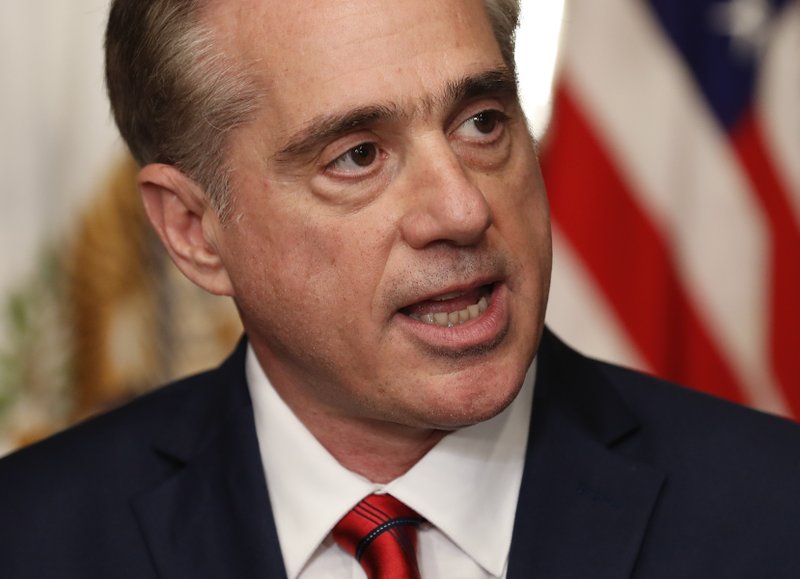
Despite the lifting of a federal hiring freeze, the Department of Veterans Affairs is leaving thousands of positions unfilled, citing the need for a leaner VA as it develops a longer-term plan to allow more veterans to seek medical care in the private sector. The order by VA Secretary David Shulkin is described in an internal April 14 memorandum obtained by The Associated Press. The VA indicated it would proceed with filling open positions previously exempted under the hiring freeze. Noting that the White House had ordered all departments to be leaner and “more accountable,” the VA indicated that more than 4,000 jobs would still be left vacant unless they were specially approved “position by position” by top VA leadership as addressing an “absolute critical need.” These positions include roughly 4,000 in the VA’s health arm and 200 in benefits, plus more than 400 information technology positions and over a 100 human resource positions, according to VA data provided to the Senate Veterans Affairs Committee earlier this month. Government auditors have previously faulted the department for recent shortages in IT and HR, which it said had hurt its ability to recruit and hire key staff department-wide. Major veterans organizations also worry this could be a sign of future tightening at the VA, coming after the department had previously warned it would need “hiring surges” to address a rapidly growing disability backlog. The groups have cautioned against any “privatization” efforts at the VA that could expand private care for veterans while reducing investment in the VA itself. “It seems to be a reversal of what they have been saying, and it’s disappointing,” said Garry Augustine, executive director of Disabled American Veterans’ Washington headquarters. Carlos Fuentes, legislative director of Veterans of Foreign Wars, said his group was concerned the VA would overlook positions that didn’t directly affect health care, such as staffing of its suicide prevention hotline. The VA said in a statement Wednesday that the hiring restrictions were needed to “streamline VA’s corporate structure and administrative positions.” While President Donald Trump‘s budget blueprint calls for a 6 percent increase in VA funding, the memo indicated that the government’s second-largest agency with nearly 370,000 employees was no different from other departments that needed to improve “efficiency, effectiveness and accountability.” It left open the possibility of “near-term” and “long-term workforce reductions.” Shulkin is also putting together a broader proposal by fall to expand the VA’s Choice program of private-sector care. “This memo lifts the federal hiring freeze. However, this does not mean business as usual for hiring,” stated VA chief of staff Vivieca Wright Simpson. She said VA leadership aimed to proceed in the coming months with “deliberative hiring strategies” as it seeks to build “a future VA of Choice.” The memo comes as the Trump administration seeks to highlight accomplishment and accountability at the VA. During the 2016 campaign, Trump repeatedly criticized the VA as “the most corrupt” and pledged to expand private care. Trump planned to sign an executive order Thursday at the VA to create a new Office of Accountability and Whistleblower Protection. The head of the office will report directly to the secretary to help VA officials identify “barriers” that impede the reassignment of employees who are no longer deemed fit to work at the department in the service of veterans, Shulkin said at a White House briefing. Existing employees will staff the office. Shulkin said he didn’t have an exact figure on what the office would cost. Shulkin also has signaled, without naming specific locations, that underutilized VA facilities will have to close. “There are some parts of the country where facilities are sitting empty, and there is no sense in keeping them empty,” he has said. The Republican-led House last month approved legislation to make it easier for the VA to fire, suspend or demote employees for poor performance or bad conduct. But the measure has been slow to move in the Senate after Democrats and unions cast it as an attack on workers’ rights. Republished with permission of the Associated Press.
State forms task force amid court website concerns
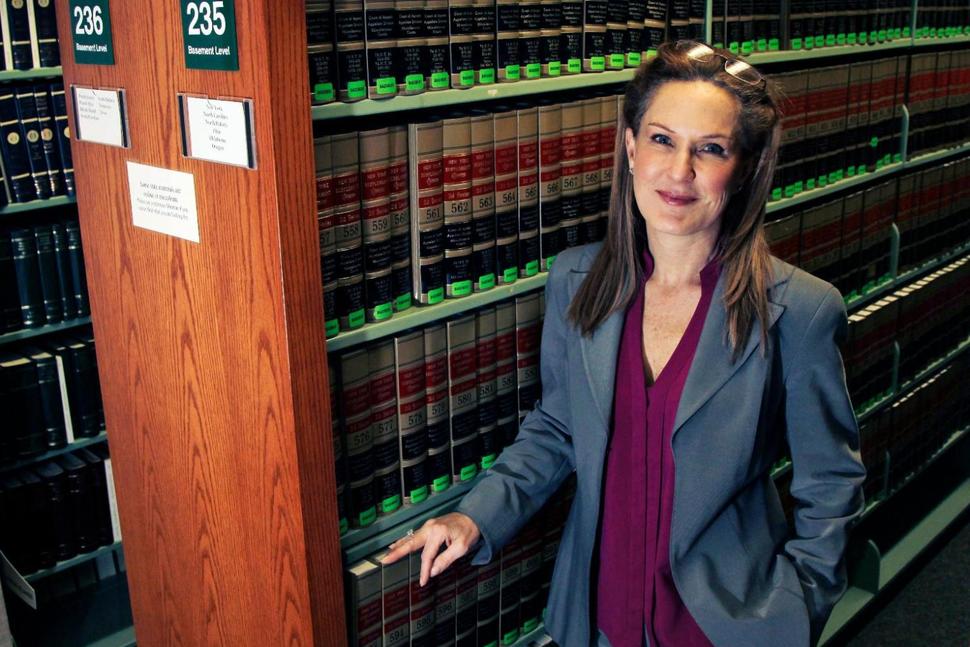
Alabama is forming a task force and taking other actions to address concerns about private information about victims and others at a state website for court records, court officials said this week. The steps are being taken after a review of Alacourt.com by The Associated Press found names, home addresses, telephone numbers and other information about rape victims and children who have been molested. Crime victims want personal information removed from the site, which allows public access to Alabama’s trial court records. “The Alabama court system is very concerned with private identifying information being made available for public view,” Nathan Wilson, legal director of Alabama’s Administrative Office of Courts, said in a statement. Many documents at the site are correctly redacted to remove sensitive information, but “it is evident that this is not occurring in every case,” the statement said. State officials say they’re also adding a notice to the website, warning lawyers and others who upload documents to remove sensitive information before they go on public view. Concerns about the site arose this month, when federal prosecutors charged a man with identity theft. Prosecutors say he used Alacourt.com to obtain Social Security numbers of about 43 people to commit crimes. The site also includes personal details about sexual assault victims across the state going as far back as 2007. The home address of a woman who reported being sexually assaulted at the University of Alabama in Huntsville in 2013 appears in two separate documents in her online case file. After the AP on April 14 reported that another case lists the home address of a rape victim at the University of Alabama’s Tuscaloosa campus, that document was removed from the site. But two other documents in the case — both of them still online Thursday — identify her by name. Last year, a former high school teacher outside Montgomery was indicted on charges of sexual contact with a 17-year-old student. In a separate case that year, a former middle school teacher near Mobile was charged with stalking a 17-year-old student. In both cases, the teenagers’ names, full addresses and telephone numbers are listed in the online records. Alacourt.com was launched in 2000 and is a partnership between the state of Alabama’s trial courts and Mobile, Alabama-based On-Line Information Services Inc. “While the Alabama Courts control the content provided on alacourt.com, On-Line Information Services Inc. is committed to working with the Alabama Courts to ensure that sensitive information remains private and not subject to public disclosure,” the company said in a statement. Alabama’s crime victims’ rights law states that addresses, phone numbers and “other related information” about victims will not be included in public records. A link to the law is posted in a list of crime victims’ rights on the attorney general’s website. But those laws are typically unenforceable, and a “false promise” to victims that their privacy will be protected, said Wendy Murphy, an attorney who has litigated cases nationwide and is director of the Women’s and Children’s Advocacy Project at New England Law ‘ Boston. “You’re saying in writing that your personal information will be protected, and in fact it’s not true,” Murphy said. “To tell a victim they have a right that’s not enforceable is, I think, the ultimate betrayal.” Murphy said people involved in court proceedings have a constitutional right to privacy, and that information such as home addresses and Social Security numbers is rarely relevant to a case anyway so there’s no need to make it public. “When the government is going to use its heavy hand to force people to participate in legal proceedings, it has a primary obligation to protect against the gratuitous dissemination of personal information,” Murphy said. Alacourt.com can be accessed by anyone who registers for the site and pays a fee. It’s available free of charge at computers in many Alabama county courthouses. Many of the records that end up on the site are filed by prosecutors and lawyers. Alabama prosecutors are not seeking to harm anyone, but often include personally identifying details about a defendant to ensure the right person is being arrested and charged, said Barry Matson, who heads the Alabama District Attorneys Association. “The victim should never be victimized again in any way,” Matson said. At the heart of the issue regarding sensitive information is “how is it transmitted, and who has access and how,” he said. Republished with permission of the Associated Press.
Alabama House to vote on confederate monuments bill
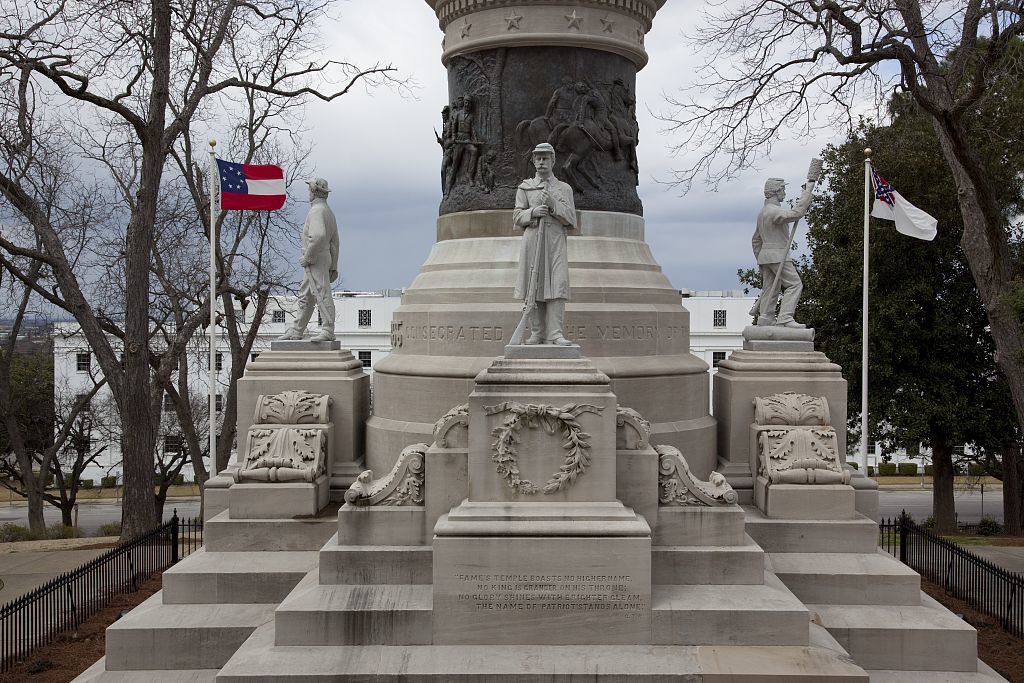
A bill to block historic monuments from being altered or removed without lawmaker approval is getting a vote in the Alabama House. SB60, otherwise known as the Alabama Memorial Preservation Act, was introduced by Tuscaloosa-Republican state Sen. Gerald Allen and was approved by the state Senate in late March and passed the State Government Committee in the House of Representatives earlier this month. Now, the bill is scheduled for a Thursday vote by the full House, which would “prohibit the relocation, removal, alteration, renaming, or other disturbance of monuments located on public property which have been in place for 20 or more years.” Similar legislation has been introduced since 2015, when then-Gov. Robert Bentley removed Confederate flags from Capitol grounds. The vote was fast-tracked, coming days after a Confederate statue in New Orleans was taken down. There are currently more than a dozen Confederate memorials sprinkled across the Yellowhammer State.
Steve Mnuchin: Donald Trump has ‘no intention’ of releasing tax returns
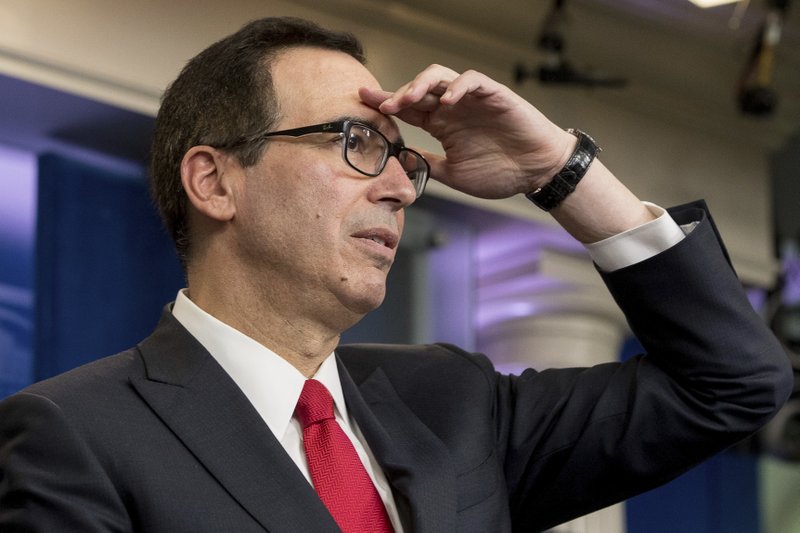
President Donald Trump “has no intention” of releasing his tax returns to the public, Treasury Secretary Steve Mnuchin said Wednesday, asserting Americans have “plenty of information” about the president’s financial matters. For decades, presidents have released their tax returns. But Trump has so far refused, saying that he would share the tax documents only after the Internal Revenue Service completes an “audit” of them. He’s never disclosed proof of an audit and tax lawyers say there’s nothing preventing him from releasing his returns if he’s under one. Trump said before he launched his campaign that he’d release them if he ever ran for office. “If I decide to run for office, I’ll produce my tax returns, absolutely,” he told an Irish television station in 2014. “And I would love to do that.” Mnuchin appeared to close the door completely Wednesday. “The president has no intention. The president has released plenty of information and I think has given more financial disclosure than anybody else. I think the American population has plenty of information,” he said, inaccurately characterizing the president’s disclosures. The comment came as the secretary briefed reporters on the president’s new proposal to overhaul taxes. Democrats have sought to use the tax debate to pressure Trump to release his returns, arguing the information is necessary to evaluate how Trump’s tax proposals would affect his personal wealth and his business’ bottom line. Mnuchin declined to comment on how Trump would benefit from his proposals. He and other administration officials left the room as reporters shouted questions about how the plan would affect the Trump family. Trump, a billionaire, owns a global real estate, marketing and property management company, which at the start of his presidency he placed in a trust that he can revoke at any time. His daughter and son-in-law, White House advisers, are also holding onto significant business assets. And Trump’s adult sons run his Trump Organization. Trump officials have offered varying explanations for why the president does not disclosure his returns. White House senior counselor Kellyanne Conway said in a television interview in January that the fact that he won the election without putting out the information shows that “people didn’t care” about it. Trump’s sons Eric and Donald Trump Jr. have made similar points in various interviews, though recent polling suggests otherwise. There’s evidence the president has been thinking about the issue in recent weeks. He asked his friend and Las Vegas business partner Phil Ruffin, a fellow billionaire, whether he should put out the returns, Ruffin said. “I advised him not to,” Ruffin said. “It’s a waste of time, and he’ll spend years explaining them and never get to accomplishing any of his goals.” Ruffin said he told the president that Democrats would hire “armies of accountants” to pore over the documents and “make an issue out of any and everything.” Even with Mnuchin’s seemingly definitive answer, the issue of Trump’s tax returns isn’t likely to go away. Democrats have threatened to hold up his tax proposals until they see the returns. Senate Finance Committee Ranking Member Ron Wyden, D-Ore., called Trump’s tax plan “unprincipled” — and one that “will result in cuts for the one percent, conflicts for the president, crippling debt for America and crumbs for the working people.” Democrats also have been pushing for a vote on a bill that would require the president and all major-party nominees to publicly disclose their previous three years of tax returns with the Office of Government Ethics or the Federal Election Commission. On Wednesday, Democratic members of the House Committee on Oversight and Government Reform sent a letter to Chairman Jason Chaffetz requesting that he allow a vote on the Presidential Tax Transparency Act. “As Members of Congress, we have the ability and duty to legislate in order to promote government transparency, combat conflicts of interest, and ensure compliance with the Constitution,” they wrote. Sen. Chris Van Hollen of Maryland also slammed Trump’s tax plan as “a half-baked collection of ideas that add up to a huge giveaway to Donald Trump and his rich friends.” “If your last name is Trump,” he added, “this plan is great for your bottom line.” Republished with permission of the Associated Press.
When is a wall not a wall? GOP redefines Donald Trump’s border wall

Congressional Republicans have a new talking point about President Donald Trump‘s border wall: It’s not really a wall at all. Instead, the wall is “a bit of a metaphor as to border security,” in the words of Rep. Mario Diaz-Balart of Florida. Or, a “quote, wall,” as Sen. John McCain of Arizona put it: A combination of drones, towers, anti-tunneling devices and the like that add up to enhanced border security. The issue arose this week as Congress squabbled over government-wide spending legislation, including money for security measures along the U.S.-Mexico border. After the president backed off his demands in face of Democratic objections, the bill is not expected to include money specifically designated for constructing the “big, beautiful” border wall Trump repeatedly promised during the campaign. Instead the legislation will pay for other border security measures, perhaps including access roads and gates and technological improvements of various kinds. That might seem to fall short of Trump’s commitments. But according to Republicans like McCain and Diaz-Balart, Trump’s promised wall may be better understood as a figure of speech anyway. “In my view you’ve got to have an interpretation of a, quote, wall as a barrier to illegal drugs, illegal people, these gangs that are coming from the Central American countries, and that means using every bit of technology that you have,” said McCain, who dined with Trump at the White House Monday night. As for whether the president shares his views, McCain said: “I believe that he is at least considering that definition.” Experts and lawmakers of both parties have long dismissed the notion of a physical wall along the 2,000-mile border as unnecessary, impractical and excessively expensive, especially on portions of the border that run through the Rio Grande or sovereign Indian land. Cost estimates top $20 billion, and even Republicans dismiss Trump’s oft-repeated promise that Mexico will end up paying for it. Republicans in border states are particularly skeptical and none have embraced Trump’s promise of a physical wall. Homeland Security Secretary John Kelly has acknowledged there won’t be a wall “from sea to shining sea” and instead has discussed a combination of structures, technology and manpower. But Kelly has been firm that there would be some new physical structures at the border. Republicans who faced uncomfortable questions this week about the need to pay for an actual wall found refuge in Kelly’s positioning. “Listen to the way he defines it — that’s what we’re working on,” said Sen. John Hoeven, R-N.D. “This is about wall, fencing, repairs, technology, people, all in the right balance to do the best job. Boy, that seems pretty reasonable.” But some immigration hard-liners were outraged as fellow Republicans debated about what constituted a wall. “The pro-amnesty people are trying to redefine the word ‘wall,’” said Rep. Steve King, R-Iowa. “They don’t want security at the border, they never have, and we should not let them play linguistic or semantics games to try to pull down a mandate that the American people commanded when they went to the polls.” As for Trump himself, his description of his promised border wall has evolved since he first announced the plan during his campaign kick-off speech. “It is way past time to build a massive wall to secure our southern border – and nobody can build a bigger and better wall than Donald Trump,” he declared that June day. During the campaign, he repeatedly described an “impenetrable physical wall” along the length of the southern border that would be built from concrete, rebar and steel and stand as high as his venues’ ceilings. The wall would not have to be contiguous, he sometimes allowed, thanks to natural barriers. And it would have “a big, beautiful door” for people to enter legally. The physical wall would be enhanced with technology, including above-and below-ground sensors, towers, and aerial surveillance, he said. After the election, Trump seemed to relax his expectations, telling “60 Minutes” that he would be OK with a fence along certain stretches — though he maintained a wall remained more appropriate for others. But as recently as Tuesday Trump was back to touting his wall, insisting at a White House event: “The wall’s gonna get built” and the building will start “soon.” Republished with permission of the Associated Press.

